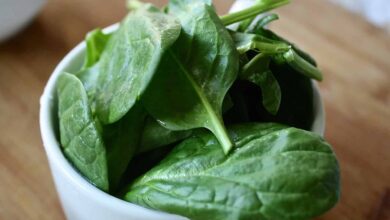Best 12 Foods To Eat While Pregnant

Ensuring a healthy and balanced diet to eat while pregnant is crucial, as the foods you consume directly impact your well-being and your growing baby. Selecting the right foods can provide essential nutrients for proper development and support overall maternal health.
Here are the Best 12 Foods to Eat while Pregnant with their uses:
1. Whole wheat bread
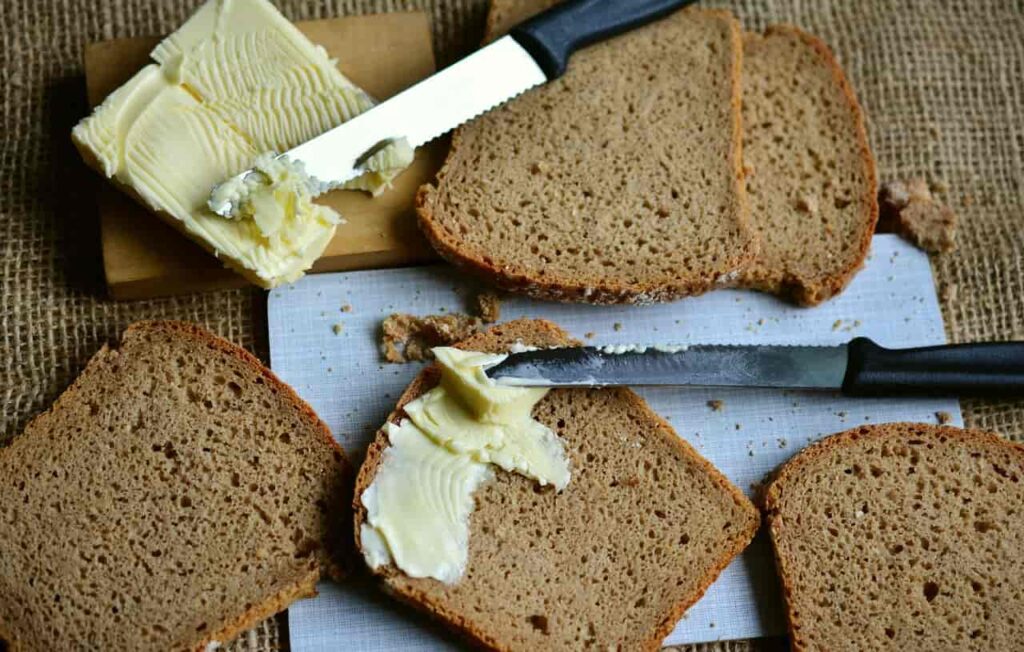
Whole wheat bread to eat While Pregnant, whole wheat bread can be a valuable addition to your diet due to its numerous nutritional benefits. Rich in fiber, vitamins, and minerals, it supports maternal and fetal health. Consuming whole wheat bread helps regulate blood sugar levels, aids digestion, and provides essential nutrients like iron and folic acid, vital for a healthy pregnancy.
How To Eat It?
Incorporating whole wheat bread into your diet while pregnant is easy and can be done in various ways. Swap refined white bread for whole wheat bread when making toast for breakfast or enjoying sandwiches. The versatility of whole wheat bread allows you to experiment with different fillings, such as vegetables, lean meats, or plant-based alternatives, to create tasty and nutritious sandwiches. One delightful way to enjoy whole wheat bread is by turning it into French toast. Dip slices of whole wheat bread into a mixture of beaten eggs and milk, then fry them in a pan until they turn golden brown.
2. Spanakopita
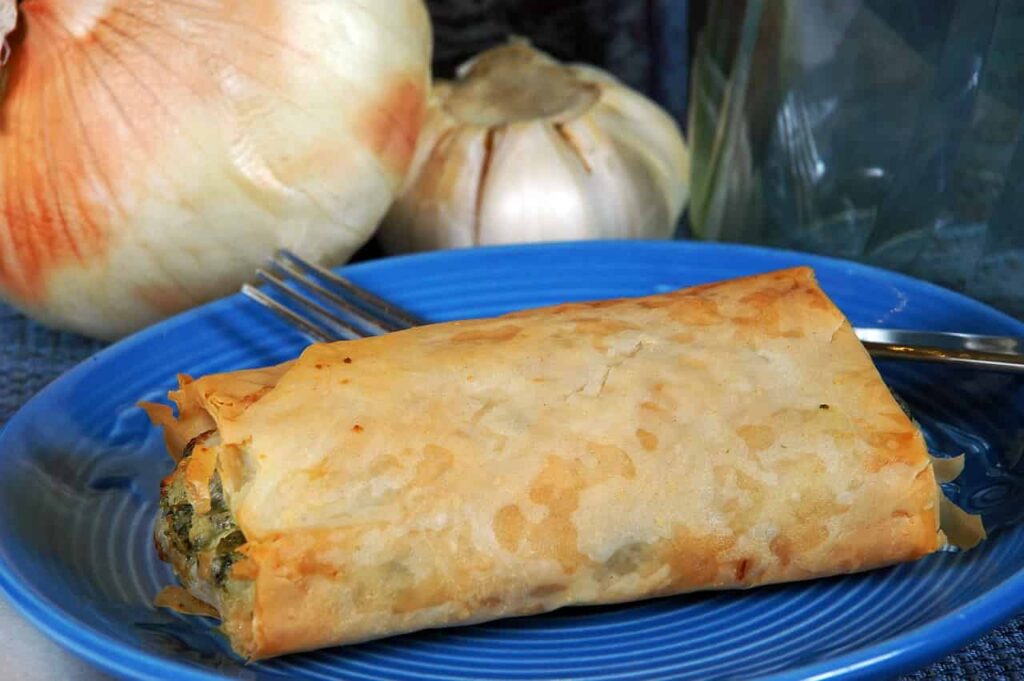
Spanakopita, a delightful Greek dish, can be a tasty addition to your pregnancy diet when consumed in moderation and with proper food safety precautions. It features layers of flaky phyllo pastry filled with a delicious mixture of spinach, feta cheese, onions, and herbs. While it offers nutritional benefits due to the spinach and cheese, it is essential to ensure the dish is thoroughly cooked to prevent any potential foodborne illnesses during pregnancy.
How To Eat It?
To enjoy spanakopita safely during pregnancy, opt for a homemade version or get it from a reputable restaurant that follows food safety guidelines. Cooking the dish until it reaches the appropriate internal temperature will help eliminate harmful bacteria, ensuring it is safe for consumption. Pair spanakopita with fresh vegetables or a light salad to add nutrients to your meal and enhance the overall nutritional value.
3. Ratatouille Recipe

The Ratatouille recipe can be a delicious and nutritious addition to a pregnant woman’s diet, packed with colorful vegetables. It is a classic French dish with a delightful medley of eggplant, zucchini, bell peppers, tomatoes, onions, and aromatic herbs. These vegetables offer essential vitamins, minerals, and antioxidants beneficial for the mother and baby’s health during pregnancy.
How to Eat It?
To prepare Ratatouille safely during pregnancy, ensure all the vegetables are thoroughly washed and properly cooked. Cooking the dish until the vegetables are tender and fully cooked will help eliminate potentially harmful bacteria. You can customize the recipe to suit your taste preferences, adding extra herbs or spices for flavor without compromising its nutritional value.
4. Salsa
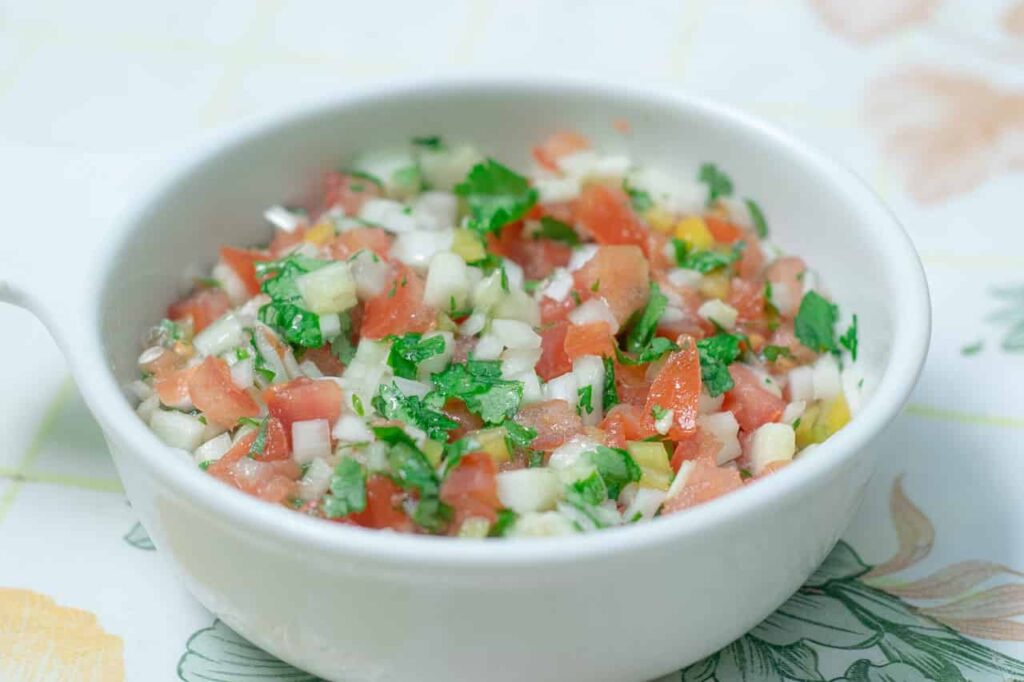
Salsa can be a flavorful and refreshing addition to a pregnant woman’s diet, offering a range of taste sensations with its blend of tomatoes, onions, peppers, cilantro, lime juice, and spices. This zesty condiment is low in calories and fat, making it a guilt-free way to add excitement to your meals during pregnancy. It’s essential to consider the ingredients and preparation methods to ensure it is safe for consumption while expecting.
How To Eat It?
To enjoy salsa safely during pregnancy, opt for homemade versions or store-bought varieties that are pasteurized and free from potentially harmful ingredients like raw eggs. Preparing salsa at home allows you to control the ingredients and avoid allergens or excessive sodium. Remember to wash fresh produce thoroughly before using it in your salsa to minimize the risk of foodborne illnesses. Listen to your body and enjoy salsa in moderation, as excessive spices may cause discomfort for some pregnant individuals.
5. Currants
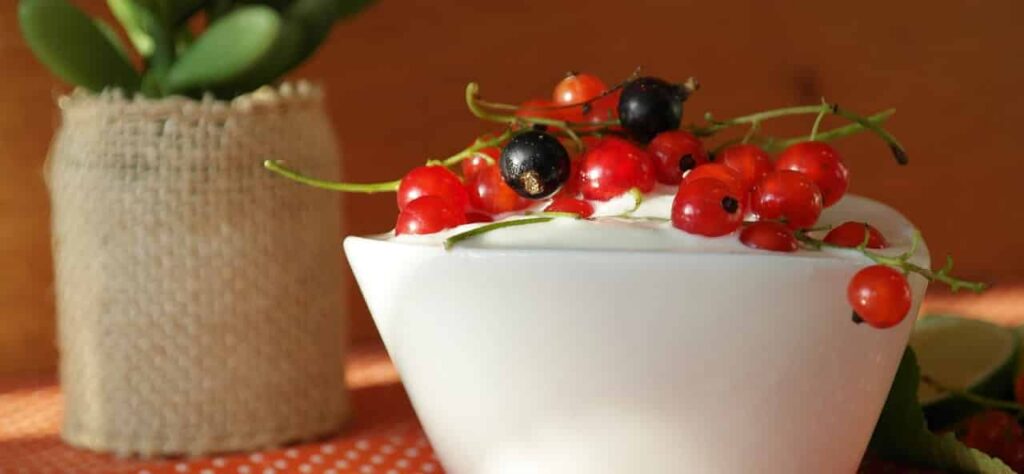
Currants can be a delightful and nutritious addition to a pregnant woman’s diet. These small, colorful berries come in three main varieties: red, black, and white. They are rich in vitamins, minerals, and antioxidants, providing essential nutrients to support maternal health and fetal development during pregnancy.
How To Eat It?
To enjoy currants safely during pregnancy, wash them thoroughly before consuming them, as they may carry traces of pesticides or contaminants. Opt for fresh or frozen currants rather than dried ones, as dried fruits may have higher sugar content and less water, which can be less ideal during pregnancy. You can incorporate currants into your diet by adding them to yogurt, oatmeal, and salads or blending them into smoothies for a delicious and nutritious boost.
6. Meatball subs
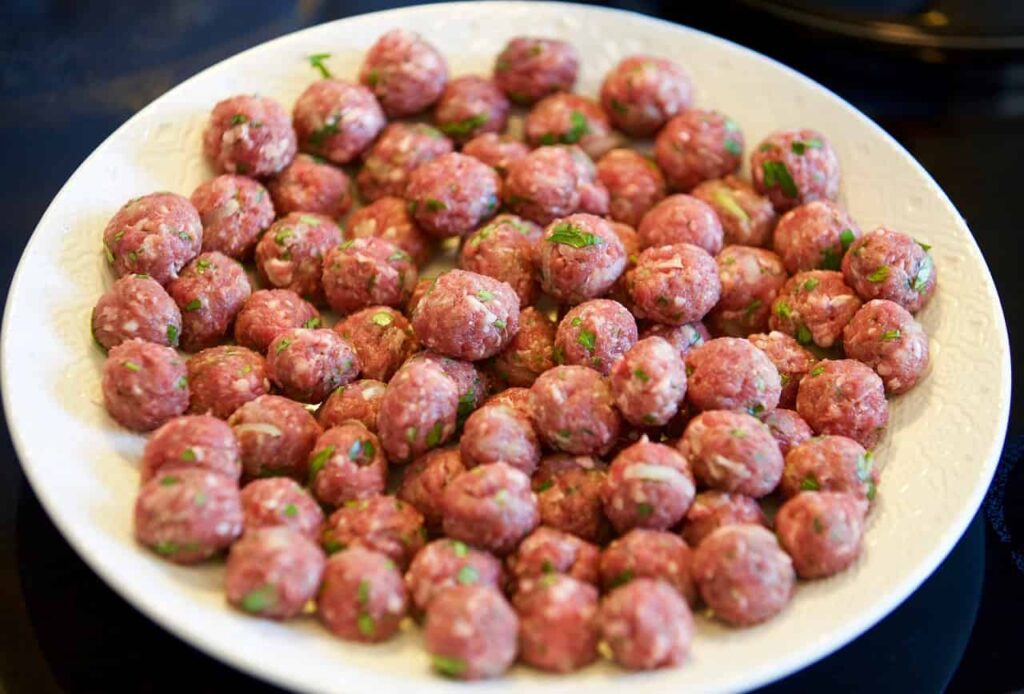
Meatball subs can be a delicious treat during pregnancy, offering a hearty and satisfying meal. These sandwiches typically consist of meatballs, marinara sauce, and cheese, all in a soft sub roll. While they can be a flavorful choice, it is essential to consider certain factors to enjoy them safely while pregnant.
How To Eat It?
To eat meatball subs safely during pregnancy, ensure that the meatballs are cooked thoroughly, reaching a safe internal temperature to eliminate any risk of foodborne illnesses. Consider using lean meat or meat alternatives for the meatballs to reduce saturated fat intake. Pay attention to the source and quality of the ingredients, opting for pasteurized cheese and avoiding any raw or undercooked components.
7. Bran muffins

Bran muffins can be a healthy choice during pregnancy, providing a good source of dietary fiber and essential nutrients. These muffins are typically made with bran, the outer layer of cereal grains. The high fiber content aids digestion and can help alleviate common pregnancy discomforts like constipation. It’s important to consider certain considerations while consuming bran muffins during pregnancy.
How To Eat It?
To enjoy bran muffins safely during pregnancy, choose recipes or store-bought options that do not contain unsafe ingredients, such as raw eggs or undercooked flour. Homemade muffins can be a great choice as they allow you to control the ingredients and ensure proper food safety measures are followed. Pairing the muffins with various fruits, yogurt, or a glass of milk can further enhance their nutritional value.
8. Oats

Oats can be a highly nutritious and beneficial food choice during pregnancy. Oats are rich in fiber, vitamins, and minerals and offer numerous health benefits for the expectant mother and the developing baby. Consuming oats can help regulate blood sugar levels, support healthy digestion, and provide essential nutrients like iron and folate, which are crucial for a healthy pregnancy.
How To Eat It?
To enjoy oats safely during pregnancy, opt for plain and unprocessed oats without added sugars or artificial ingredients. Instant oatmeal packets may contain added sugars and should be consumed in moderation. Consider preparing oats from scratch to control the elements and avoid potential allergens. You can cook oats with milk or water and top them with fruits, nuts, or a drizzle of honey for added flavor and nutrition.
9. Salmon
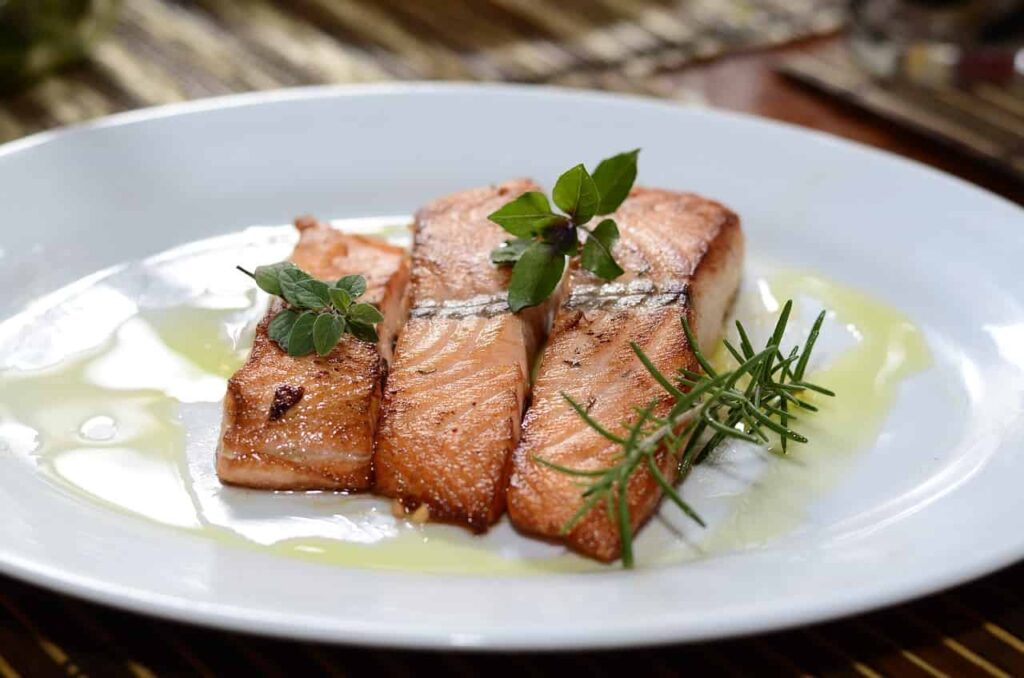
Salmon is a nutritious and safe choice for pregnant women to include in their diet. It is a rich source of high-quality protein, omega-3 fatty acids, and essential vitamins like vitamin D and B12. Omega-3 fatty acids, which are necessary for fetal brain and eye development. Eating salmon during pregnancy can provide these important nutrients that contribute to the overall health of both the mother and the baby.
How To Eat It?
Salmon to eat while pregnant safely, it is crucial to select fresh or frozen salmon from reputable sources to ensure its quality and minimize the risk of contamination. Avoid consuming raw or undercooked salmon to prevent potential exposure to harmful bacteria or parasites. Cooking salmon to an internal temperature of at least 145°F (63°C) will help ensure it is safe to eat while pregnant.
10. Hummus

Hummus can be a delicious and nutritious addition to a pregnant woman’s diet. This popular Middle Eastern spread is made from blended chickpeas, tahini (sesame seed paste), olive oil, lemon juice, garlic, and various seasonings. Hummus is a rich source of protein, fiber, and essential vitamins and minerals, making it a healthy choice for expectant mothers.
How To Eat It?
Hummus To eat while pregnant, enjoy it safely and ensure it is prepared with fresh and pasteurized ingredients. Avoid homemade hummus with raw eggs or undercooked components. Store-bought hummus from reputable brands is generally safe, but always check the label to confirm that the product is pasteurized and free from any questionable additives. Incorporating hummus into your pregnancy diet can be a tasty and nutritious choice, but remember to consume it in moderation as part of a balanced meal plan.
11. Pasta
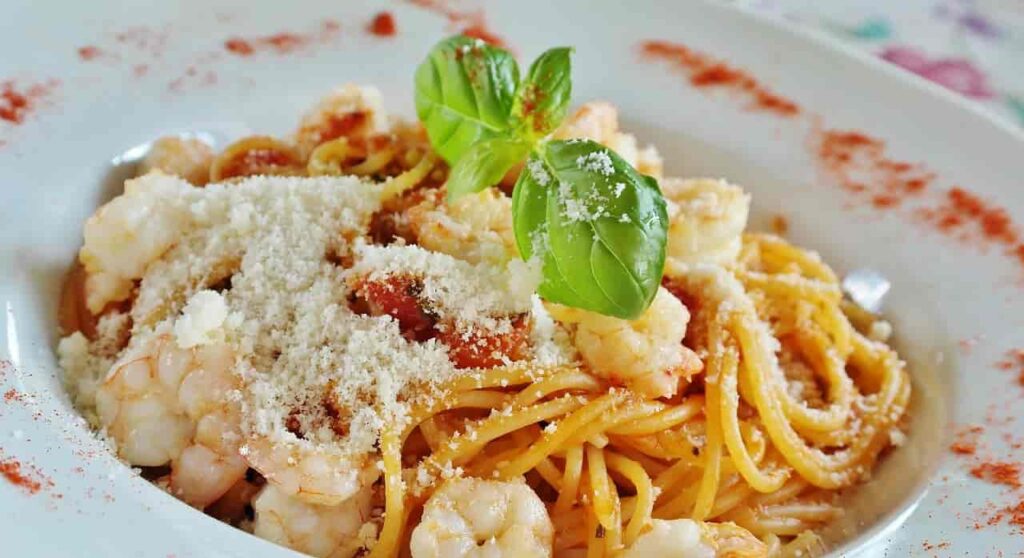
Pasta can be a comforting and versatile food option during pregnancy, providing a source of carbohydrates that can help sustain energy levels. Made from wheat flour, pasta comes in various shapes and sizes, making it easy to incorporate into multiple dishes. When consuming pasta during pregnancy, it’s essential to be mindful of the type of pasta and the accompanying sauces or toppings.
How To Eat It?
Pasta To eat while pregnant safely, opt for whole wheat or enriched pasta options instead of refined white pasta. Whole wheat pasta retains more nutrients and fiber, supporting better digestion and providing additional vitamins and minerals. Pair your pasta with nutrient-rich sauces like tomato-based sauces, pesto, or vegetable-based toppings to enhance the meal’s nutritional value.
12. Lamb

Lamb can be a flavorful and nutritious option for your diet during pregnancy. It is a rich source of high-quality protein, iron, zinc, and vitamin B12, essential nutrients for the mother and the developing baby. Consuming lamb safely and in moderation while pregnant is important.
How To Eat It?
Lamb to eat while pregnant safely, make sure it is cooked thoroughly to kill any harmful bacteria or parasites that might be present. Avoid undercooked or raw lamb to prevent the risk of foodborne illnesses. Consider selecting lean cuts of lamb to reduce saturated fat intake. Combining lamb with various vegetables and whole grains can create a well-balanced and nutritious meal for pregnant women.
FAQ’s
What are some safe seafood options to eat while pregnant?
Seafood to eat while pregnant it is generally safe to consume low-mercury seafood options such as salmon, shrimp, catfish, and trout.
Can I eat sushi while pregnant?
It’s advisable to avoid raw or undercooked seafood, including sushi, eat while pregnant. Fully cooked sushi alternatives or vegetable-based rolls to enjoy this cuisine safely during pregnancy.
Are eggs safe to eat while pregnant?
Yes, eggs are safe to eat while pregnant if fully cooked. Avoid consuming raw or runny eggs to minimize the risk of salmonella infection. Cooking eggs until the yolks and whites are firm ensures their safety eat while pregnant.
Can I eat soft cheeses while pregnant?
Avoiding soft cheeses like Brie, Camembert, and feta during pregnancy is generally recommended. These cheeses may contain harmful bacteria called Listeria, which can lead to serious complications for the baby. Opt for hard cheeses like cheddar or pasteurized versions of soft cheeses as a safer alternative.
Are nuts safe to eat while pregnant?
Yes, nuts are safe to eat while pregnant and can be a healthy snack. However, be cautious if you have nut allergies and avoid consuming them excessively, as they are calorie-dense.
Can I eat spicy foods while pregnant?
Yes, you can eat spicy foods while pregnant if you enjoy them. Spicy foods do not harm the baby but may cause discomforts like heartburn or indigestion for some pregnant individuals. Moderation is key; you can adjust the spice level to your preference.
Is it safe to eat deli meats while pregnant?
Limiting or avoiding deli meats during pregnancy is advisable due to the risk of Listeria contamination. If you consume deli meats, heat them until steaming hot to reduce the risk of foodborne illnesses.
Can I eat ice cream while pregnant?
You can eat ice cream while pregnant, but be mindful of the portion size and ingredients. Opt for pasteurized ice creams, and enjoy them in moderation as a treat rather than a daily indulgence, as they can be high in added sugars and calories.
Conclusion: Welcome to Lady Well Care, where we provide engaging and trustworthy fitness, culinary, and nutrition content tailored exclusively for women. Our primary aim is to ensure your well-being during the Pregnancy and post-abortion phases.
- Feel free to explore our Homepage, where personalized articles are carefully curated to suit your interests. We are committed to guiding you toward better health and a happier life!




